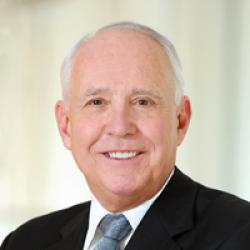The recent news stories of unprofessional, unethical, and outright racist behavior in academic medicine are deeply troubling. While our community has responded, I am deeply concerned that these incidents may be increasing.
In a time when growing incivility and discord are feeding divisiveness all around us, it is essential that all of us in the academic medicine community, from our leaders to our learners, hold ourselves to the highest moral and ethical standards. We all must have the courage to step up and lead in order to address and mitigate the racial issues we are facing on our campuses. The Hippocratic Oath edict to “first, do no harm” must serve as the cornerstone of everything we do as physicians, researchers, educators, mentors to the next generation of doctors, and exemplars in our communities. The privilege of our profession’s white coat demands the highest standards of behavior — both when we are wearing it and when we are not.
Now more than ever, we must take decisive action to end conscious and unconscious racial bias, overt discrimination, gender harassment, and inequity in academic medicine. Research shows that diversity in medicine — or the lack thereof — affects how physicians deliver care and make clinical decisions, how faculty develop and deliver the medical school curriculum, and how medical research is conducted. When I visit member institutions, I see where we have made gains. Our students, residents, and faculty increasingly reflect people of all races and ethnicities, gender identities, and sexual orientations. Yet we must end the insidious racism that lies deep in the heart and history of academic medicine. We have much more work to do to get at the root of these problems and create a true culture of inclusion and equity in our learning and workplace environments for our learners, faculty, staff, and patients.
We cannot undo past racism and inequity in medicine, but we must learn from it and create a better future. As a community, let us use this moment to confront the problems that persist in our culture, and facilitate open and honest conversations with our students and residents — and with each other — about racism, discrimination, harassment, and inequity in academic medicine. It is critical to talk about professionalism and our moral and ethical failures and weaknesses so that we can collectively address and eliminate them. Through meaningful self-reflection and commitment to action, let us work together to ensure that all of us in the academic medicine community embody the highest standards of behavior, ethics, and actions, and exemplify our commitment to diversity, inclusion, and equity. All physicians — those who are in training and those who have been in practice for decades — must be living examples of the professionalism that we espouse and simultaneously reject racism and inequity in any form.

